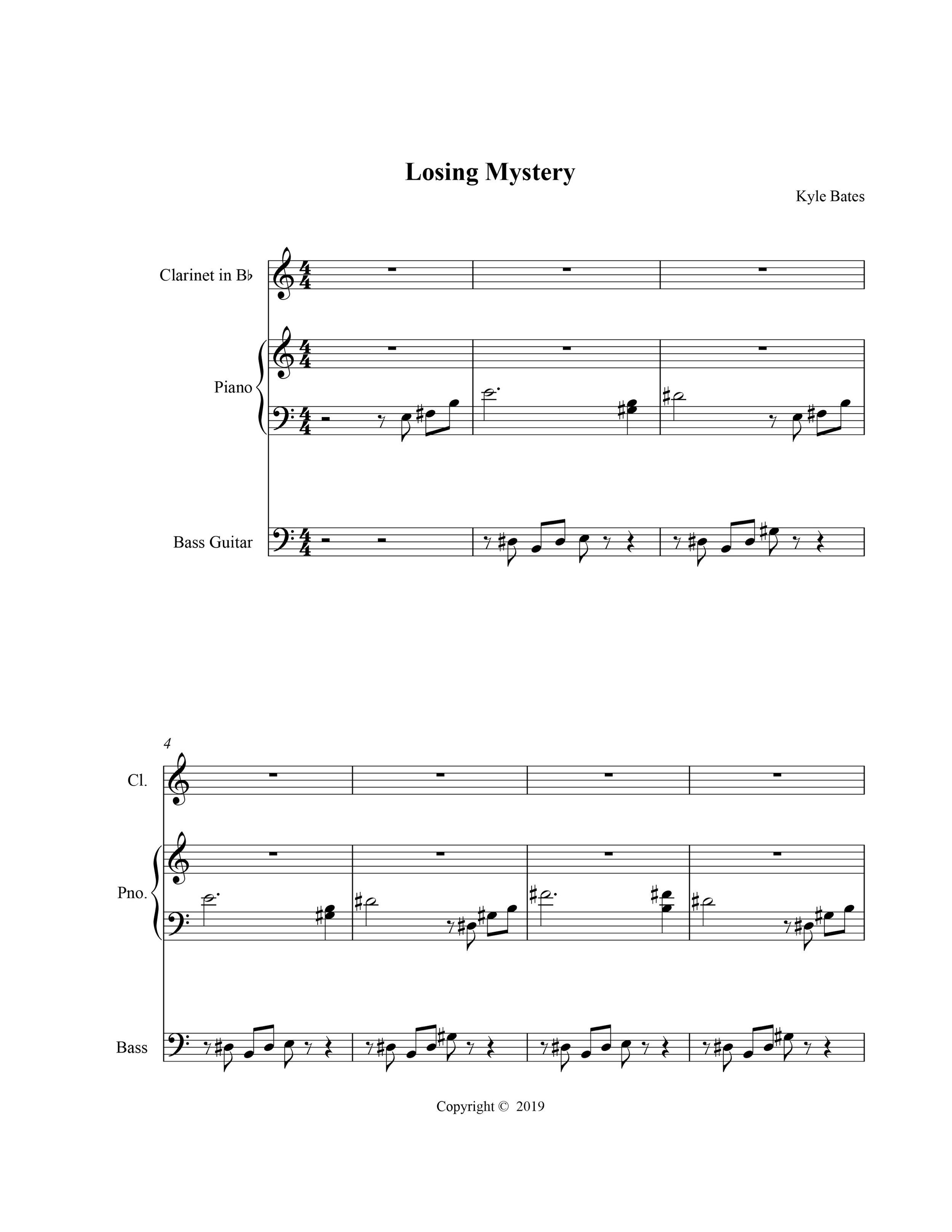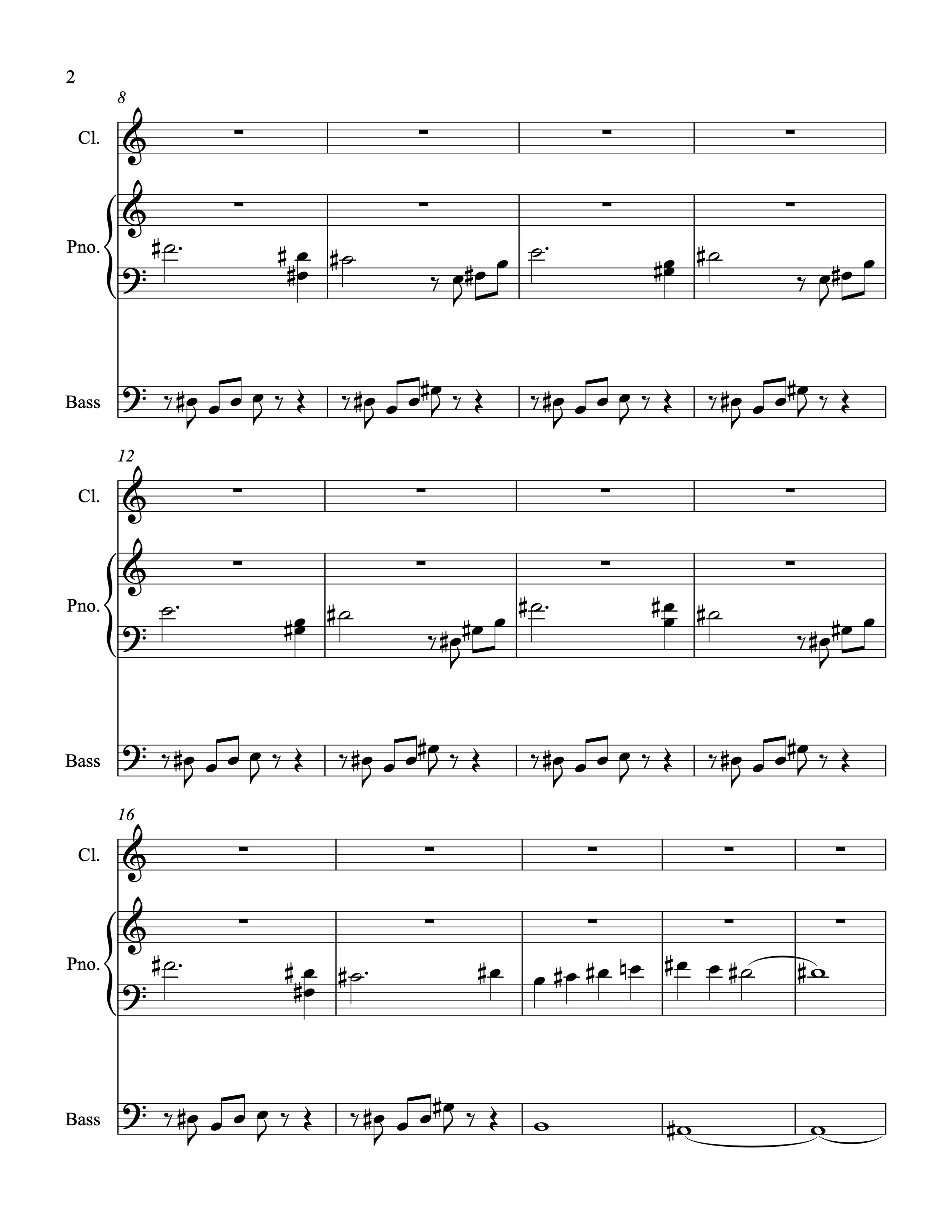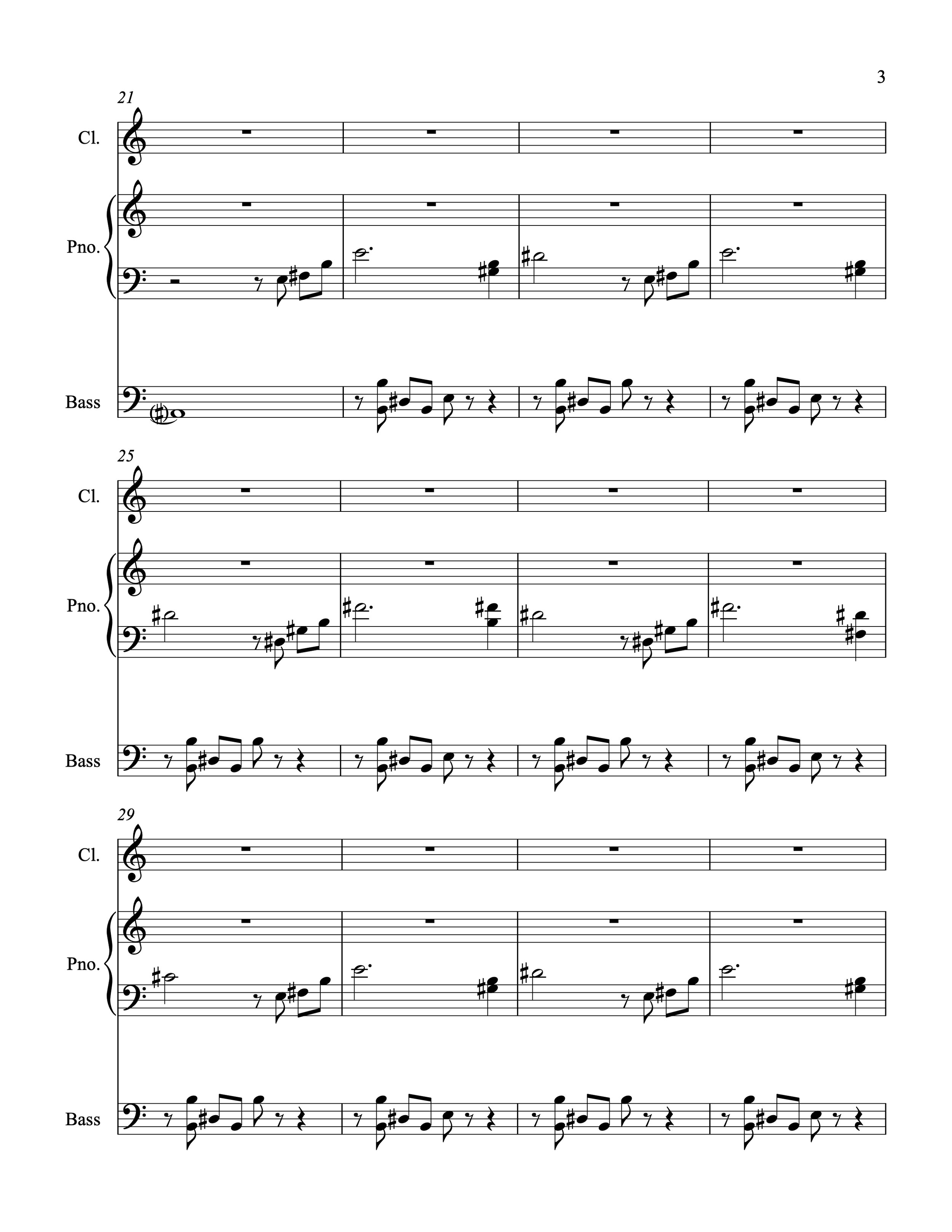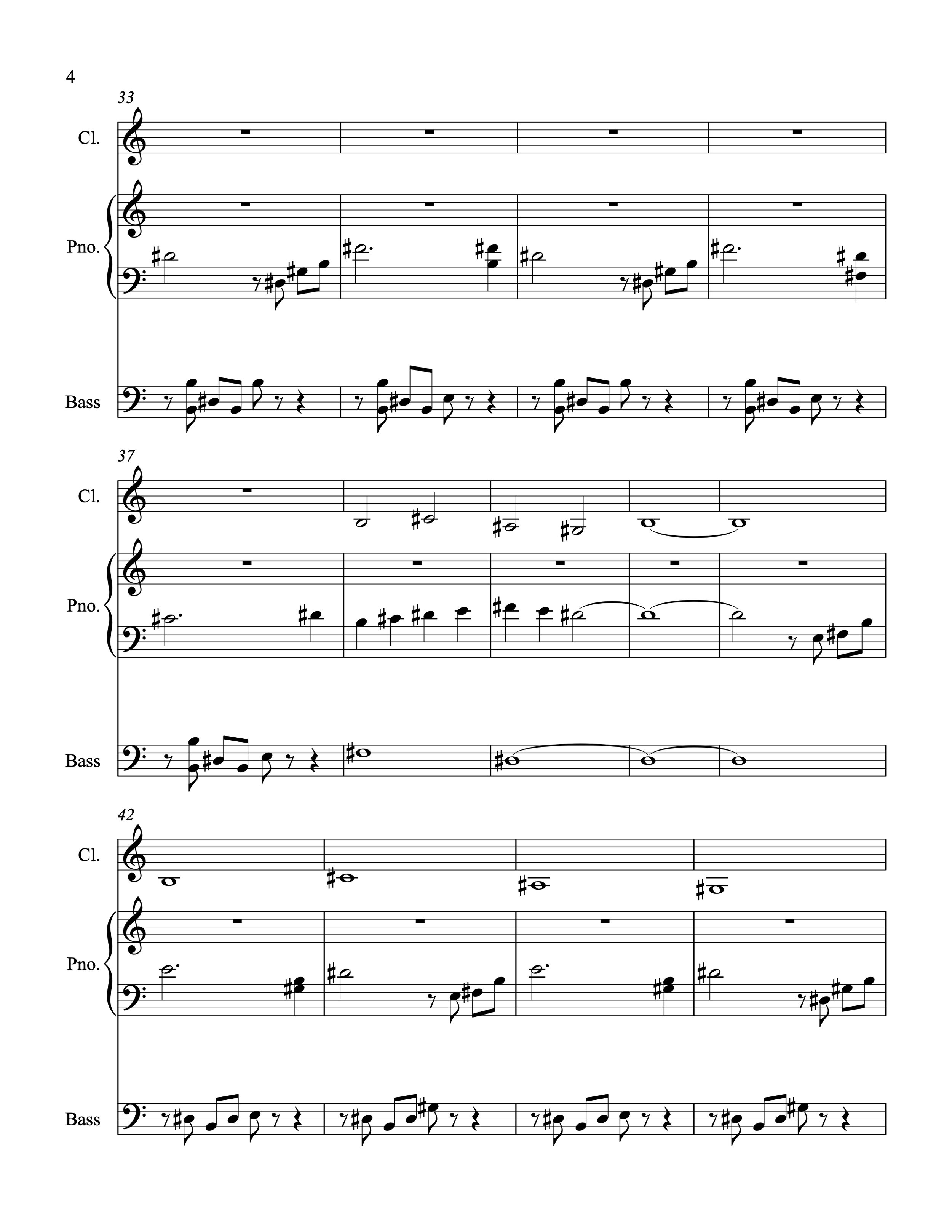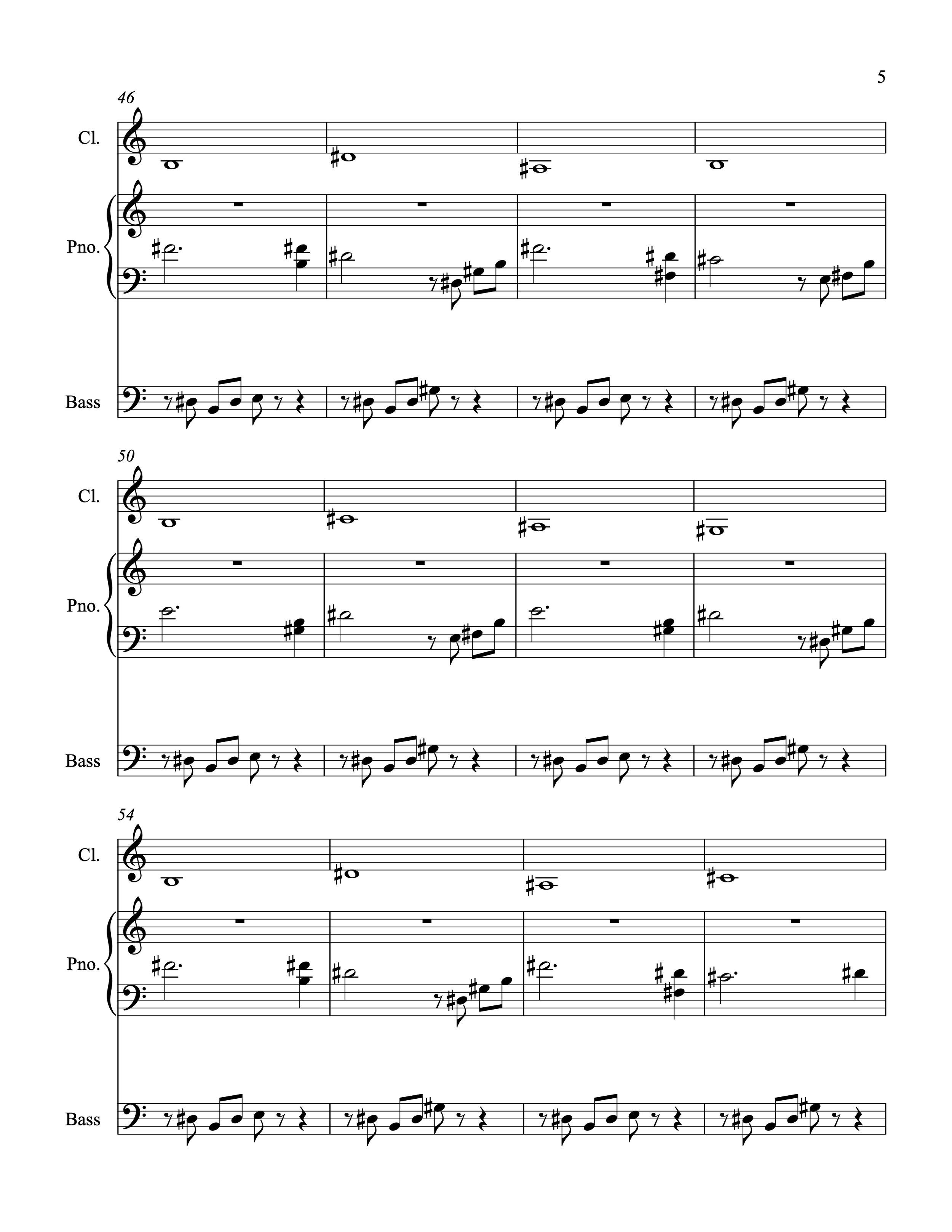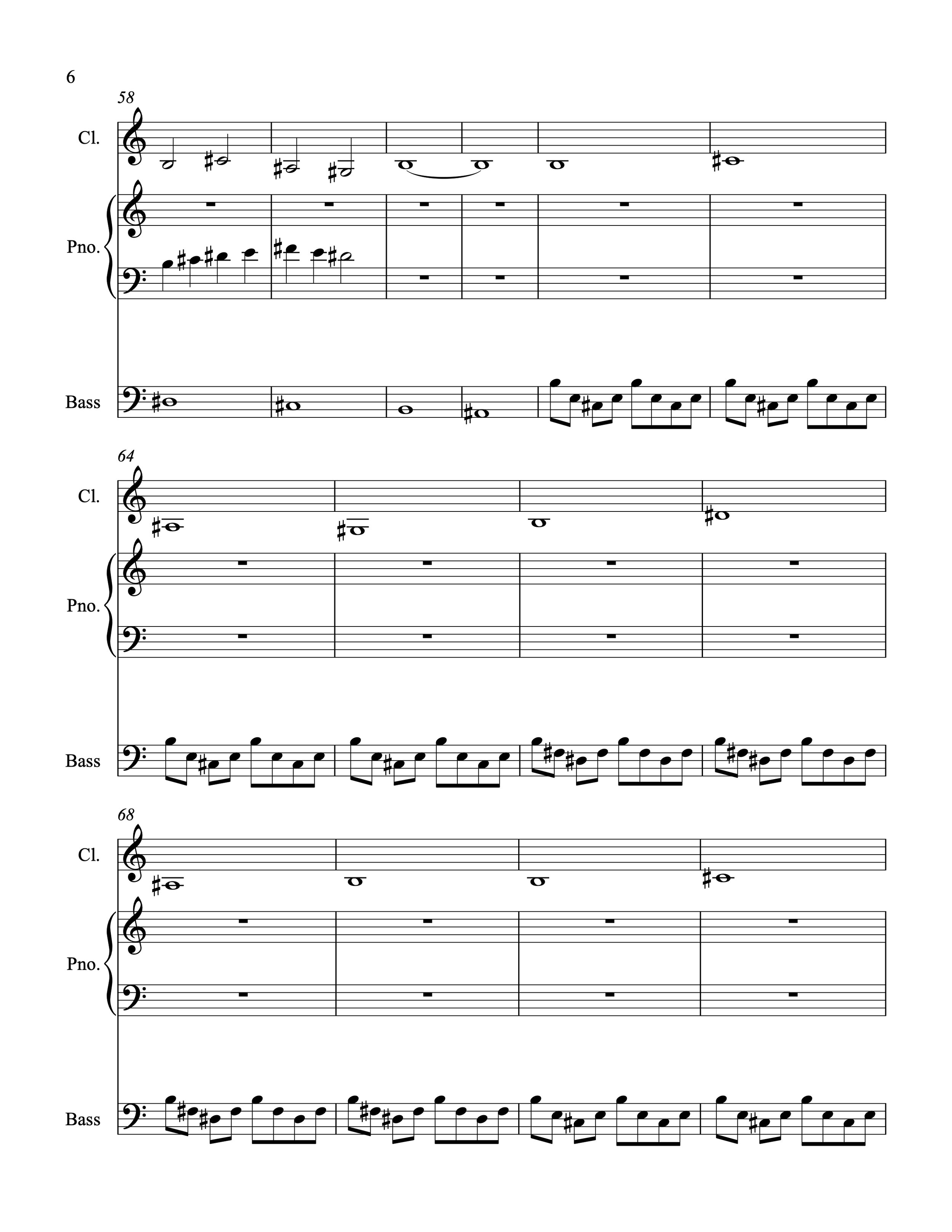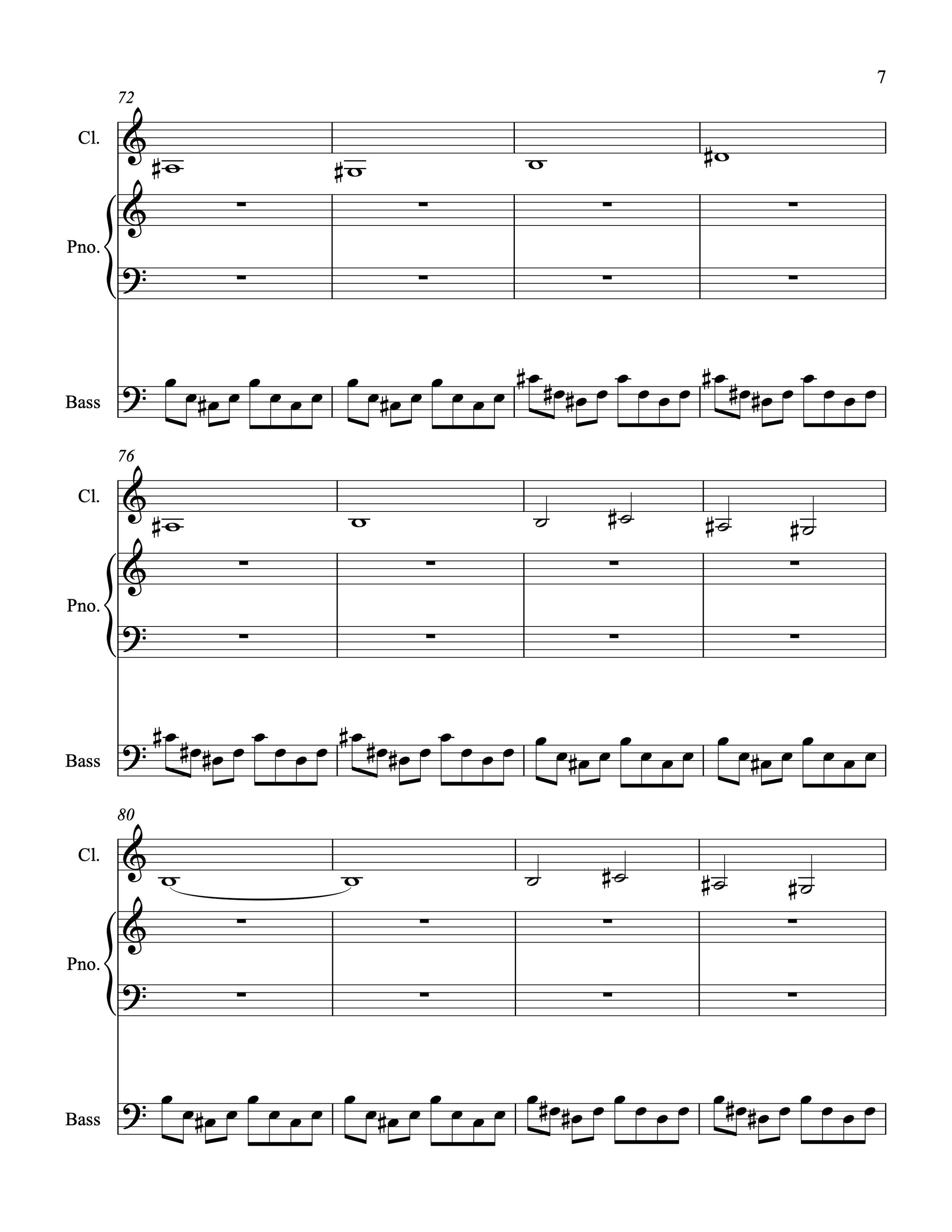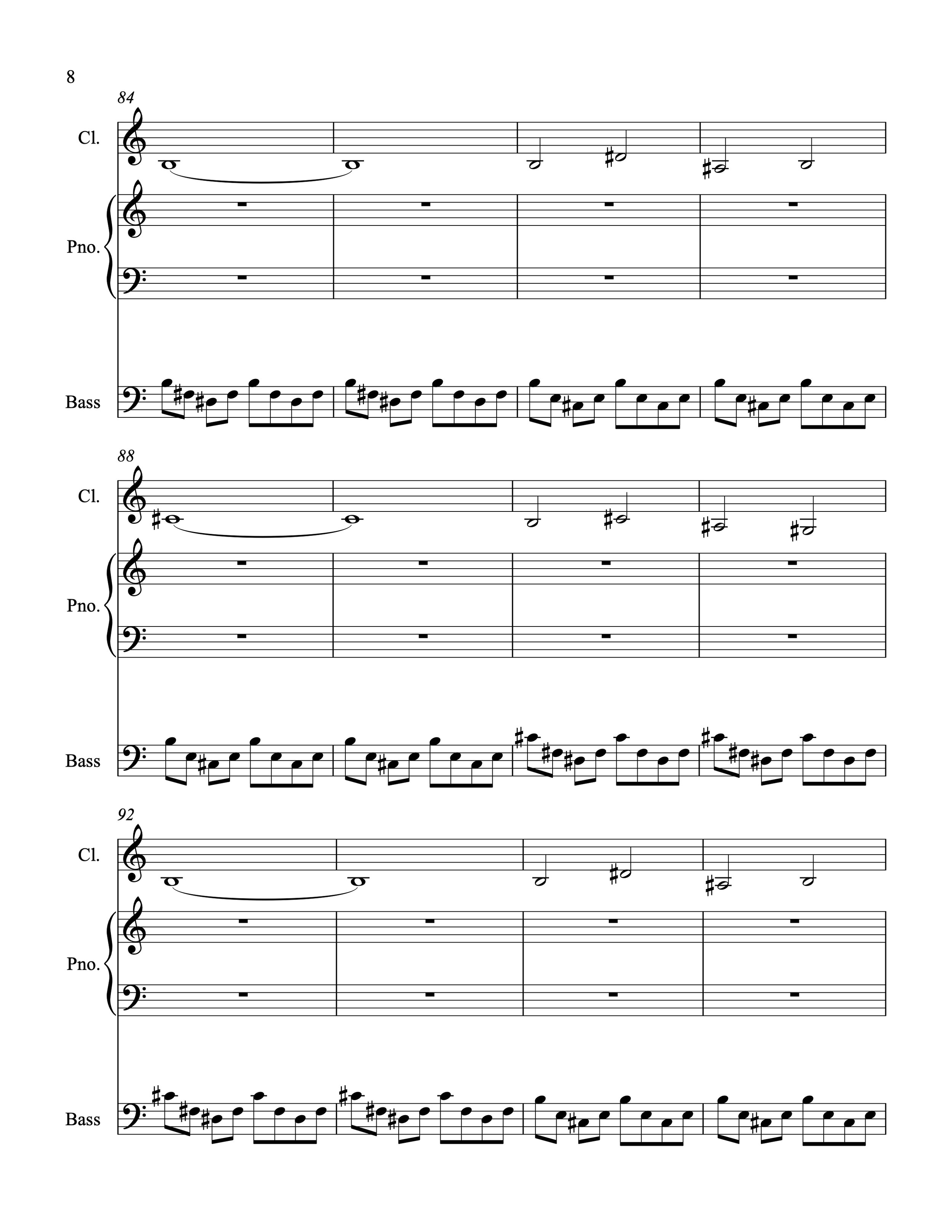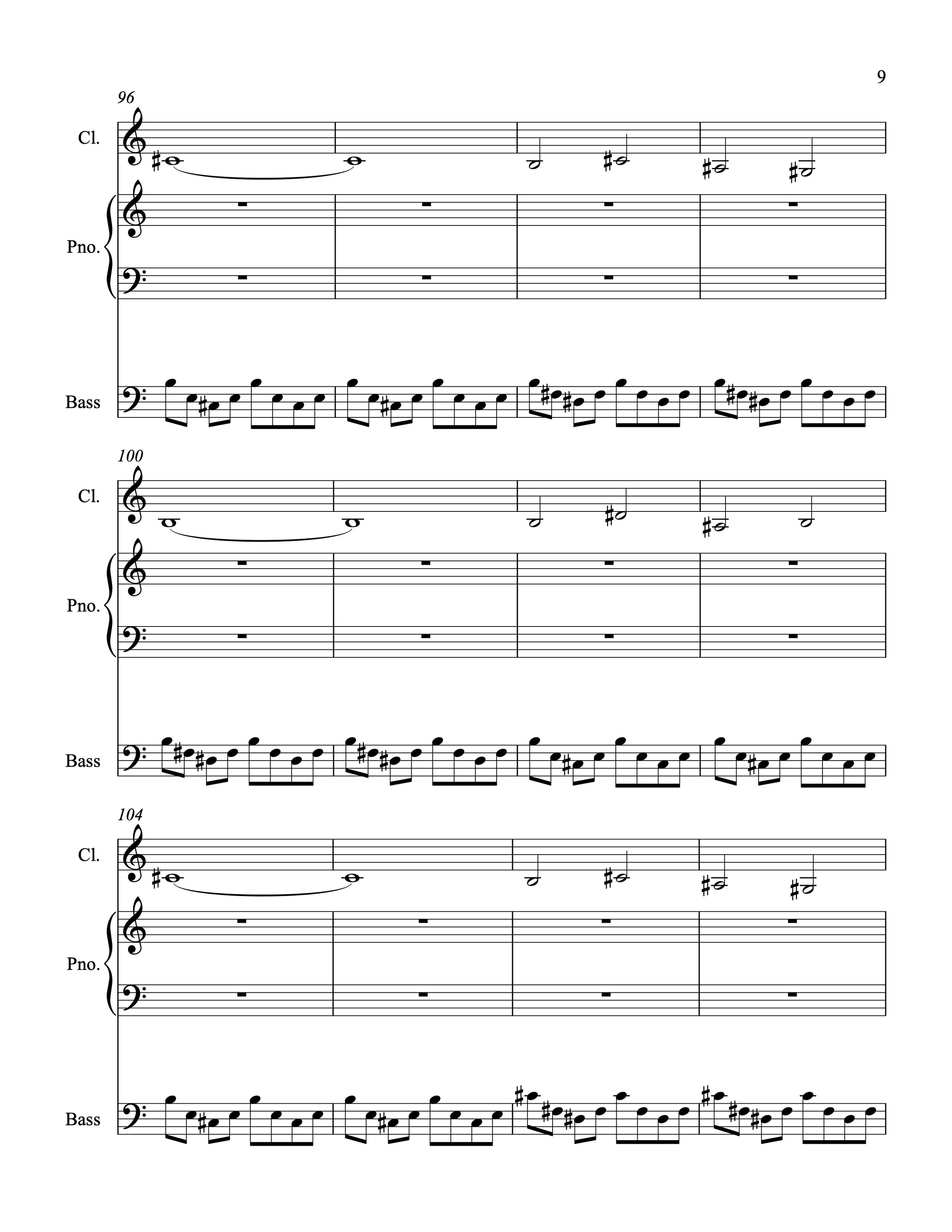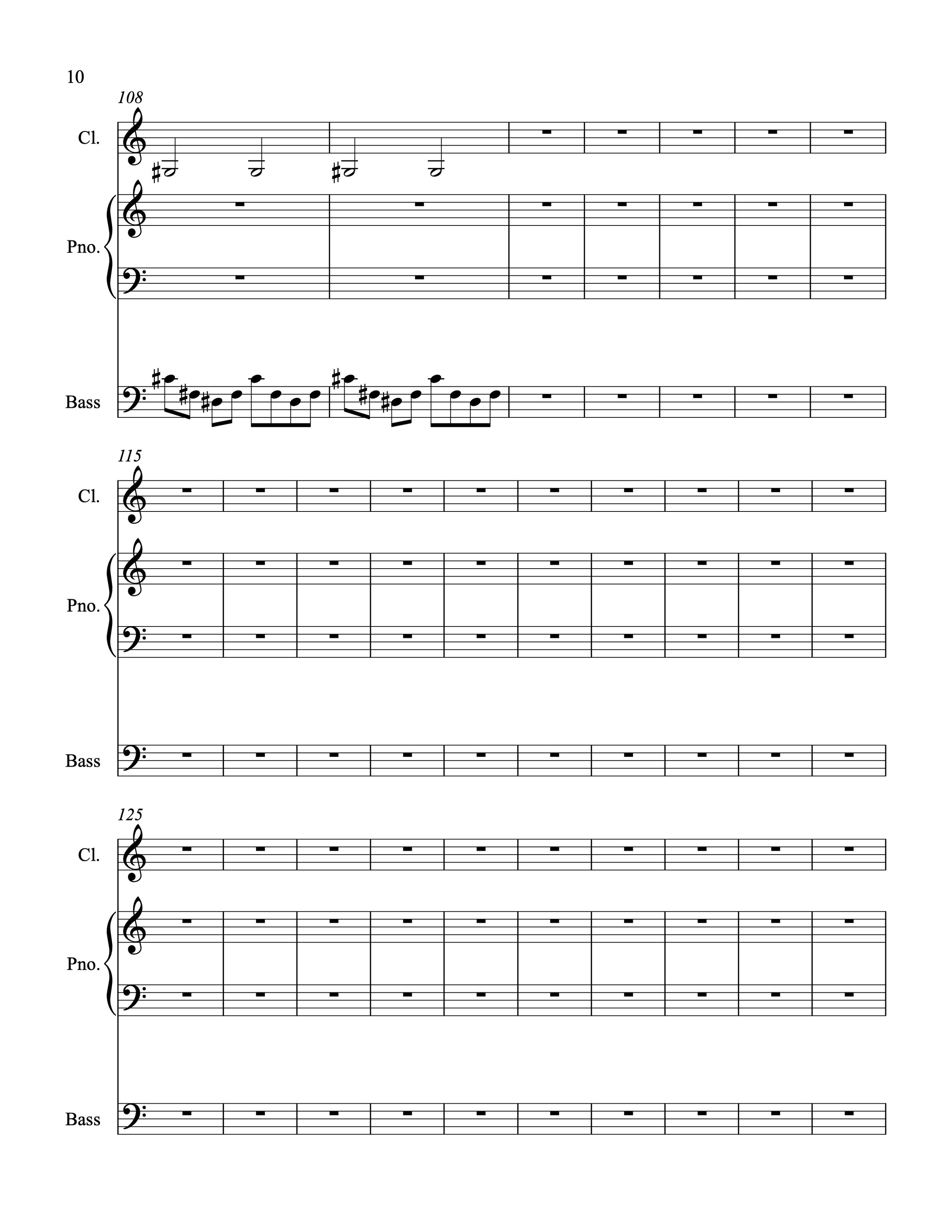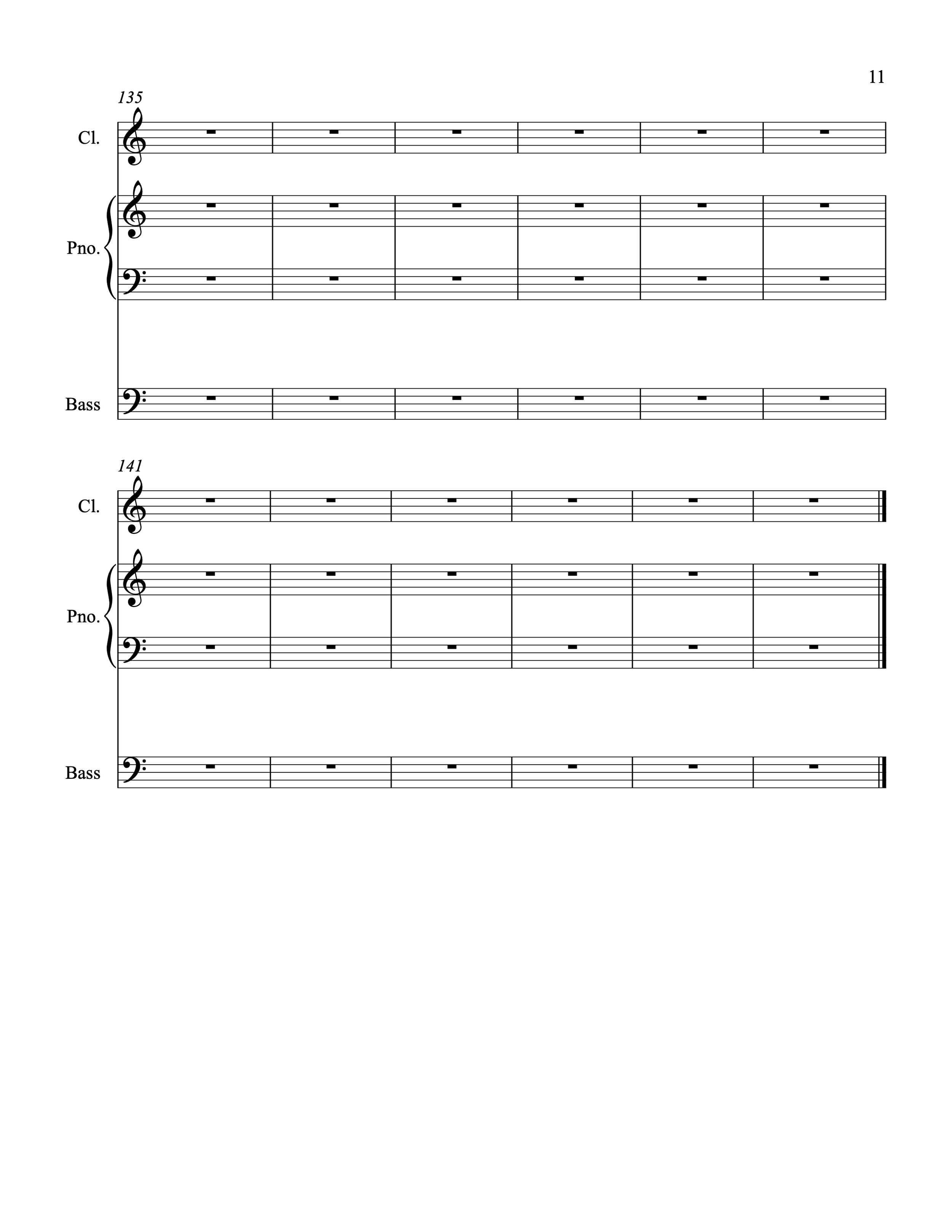Losing Mystery, 2019
(composition and live performance, debuted at Littlefield Concert Hall, Oakland California, December, 2019)
Score:
Live Instrumentation:
Moog Sub 37 Synthesizer, Grand Piano, Electric Baritone Guitar, Violin, Clarinet, Electric Guitar, Hardware Sampler, Effects Pedals and Amplifiers
Players:
Samuel Regan-Guitar
Michelle Moeller-Piano
Chari Glocovoc-Smith-Synthesizer
Donggnuk Kim-Violin
Matthew Ka Git Wong-Clarinet
Kyle Bates-Bass VI
Program Notes:
This piece tracks an emotional landscape: longing and loss, the discovery of numbing comfort in loss, and the tumultuous transition from these feelings to a more reflective zone. These spaces are mapped by initial through-composed sections that give way to structured improvisations. Minimalism, chamber music, noise, and indie rock are all at play, culminating in a drone that disintegrates into pointillistic musical remnants. This fragmentation is a sonic metaphor for the way emotional meanings become calcified with time, reinterpreted and perhaps repurposed.
Composition Description:
The intention of Losing Mystery is to bridge three emotional states: an initial state of longing and loss, the discovery of numbing comfort in this loss, and the transition out of these overwhelming feelings to a more spacious, reflective zone. Musically the piece references minimalism, noise, lo-fi indie rock, and chamber music. The focus of the piece is as much on timbre as it is on melody–it utilizes and juxtaposes sonic techniques such as the intentional lo-fi palette made popular in 90s Pacific Northwest music and a hi-fi digital signal processing approach. The piece was written with both midi and live instruments, and the midi instruments were later replaced by live instruments–in turn, as the piece progresses the live instruments are deconstructed: granulated, resampled, looped, and the like. This upending of the live instrumentation is a sonic metaphor for the way the meaning of emotions can become calcified with time, reinterpreted and perhaps repurposed.
“Musashi Plain Moon” by Ikue Mori is a musical reference point, with its juxtaposition of midi and live instrumentation, heavy use of sampling, and almost pointillistic minimal composition. A comparison can also be drawn to George Lewis’ “Emergent” in its use of digital signal processing. As with most of my work, the worlds of “live” and “recording” are congruent and the pieces are malleable. When performed Losing Mystery takes advantage of improvisation to further reinforce the metaphor of emotions evolving over time.

